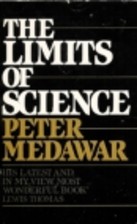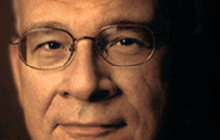Science seems to be “king” in our day. If you can show even minimal “scientific evidence” for something, you have all but proven your point. However, science and its methods have their limits. In this course experience, the goal is to examine the scientific method and show how it is limited to a certain area of truth.
The theorist who maintains that science is the be-all and end- all–that what is not in science books is not worth knowing–is an ideologist with a peculiar and distorted doctrine of his own. For him, science is no longer a sector of the cognitive enterprise but an all-inclusive world-view. This is the doctrine not of science but of scientism. To take this stance is not to celebrate science but to distort it…. (Nicholas Rescher, The Limits of Science)
So, what is the scientific method and what are its limits? To answer this question, we will follow the outline of a great resource from The Institute for Creation Research. We have added a few aids along the way.
To help get your thoughts flowing, watch this short video that outlines many of the basic questions that come together to answer our big question: Are There Limits to Scientific Inquiry?
Version 1.2
[i] Baumgardner, J. 2008. Exploring the Limitations of the Scientific Method. Acts & Facts. 37 (3): 4.
Version 1.0








